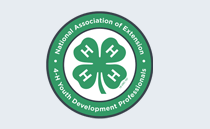Abstract
Youth well-being is of central importance, now, perhaps more than ever before. In the wake of the covid pandemic, youth need emotional support and connection throughout the academic year and summer months. Camp is a primary method of summer programming in America and thus may be an important conduit for mental, emotional, social, and spiritual health for youth during the summer. Camp staff may be one mechanism for supporting youth well-being; however, relatively little is known about the relationship between camp staff well-being and youth camper well-being. To address this gap, this study used secondary cross-sectional data collected by a large Jewish camp network to examine the direct and indirect relationships between self-reported staff well-being outcomes and parent-reported youth well-being outcomes. The results suggest that increased staff well-being and feelings of support are related to increased youth well-being at camp. The results also suggest that practices that directly support staff well-being can indirectly affect youth well-being. These results have implications for youth development practitioners and offer a launching point for future research examining the relationships between staff, youth, and well-being at summer camps and in other educational, immersive, and experiential settings.
Recommended Citation
Lubeznik-Warner, Robert P. and Rosen, Nila
(2023)
"Supporting Staff Supports Youth Well-being at Summer Camp,"
Journal of Youth Development: Vol. 18:
Iss.
3, Article 3.
Available at:
https://tigerprints.clemson.edu/jyd/vol18/iss3/3
Included in
Child Psychology Commons, Community-Based Learning Commons, Developmental Psychology Commons, Leadership Studies Commons



